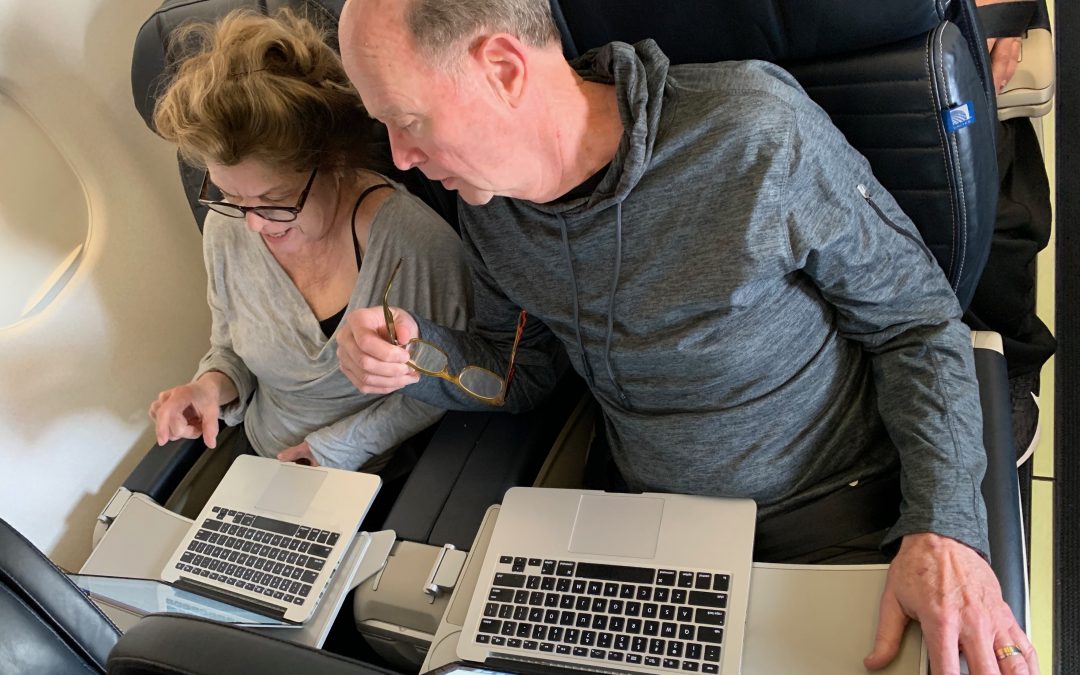Us Being Focused
In my last blog, I shared a true story about my parents’ extraordinary selfless service to leprosy patients in Paraguay, South America as an illustration of the Metta Center’s definition of true generosity:
“True generosity … the act of recognizing the mutual dignity inherent in all life, and then subsequently working to balance the ongoing, and evolving, empowerment of all life.” (emphasis added)
My parents’ story does, indeed, illustrate their commitment to the dignity inherent in the lives of the poorest of the poor suffering with a dreaded disease. And their steadfast focus on improving the lives of these oppressed people changed the way leprosy is now treated on the planet. The American Leprosy Mission has acknowledged my parents as the first to systematically treat leprosy patients in their homes rather than locking them up in a colony. Their ambulatory care approach, created in the face of great protestations from all sides, is now the preferred form of leprosy treatment throughout the world.
The upsides of living a focused life are well known. And today, many people seem to be longing for more focus. Here’s just one example of literally hundreds of websites devoted to providing advice about how to live a more focused life.
To attain greater focus, we are instructed to get rid of distractions, set goals and make to-do lists. The most recent addition to the list of instructions is to practice mindfulness in order to train our minds to focus.
All of this is good.
But it seems to me that we know much less about what we sacrifice when we doggedly focus on even the worthiest initiatives. What is the curse associated with too much focus?
As a former strategy professor, scholar and consultant, my immediate answer to that question is that tunnel vision leads to potentially missing new opportunities that arise outside the range of our focus.
My personal life experiences suggest a much deeper and more difficult answer to the question: My parents’ singular commitment to the health and dignity of patients with leprosy, by definition, led to a lesser focus on other responsibilities in their lives.
Like their responsibilities to their children.
It turns out that this is not at all uncommon for missionaries. Apricot Irving, who will appear on my podcast in November in an episode titled HELP – DON’T HURT!, addresses this issue in her award-winning book The Gospel of Trees.
Apricot grew up as a missionary’s daughter in Haiti. In doing the research for her book, she interviewed Ken, a former missionary who had worked with her dad. Ken’s words, “The whole mystique of missionary service – the more you sacrificed, the more you destroyed your family – meant that you were even more respected for what you’d done for God. It proved you were unafraid. You didn’t count the cost.”
Destroying their family proved their worth. It proved their unparalleled focus.
In my podcast interview, Apricot talks about her reaction to Ken’s words:
“And to hear that grief in his voice. There was that echo of his words in my body of, “Oh, I remember that ache of feeling like, ‘Do I matter? Is my parents’ cause more important to them than my sisters and I?'” And I think that’s a common thread in all the interviews that I’ve done with missionary kids. That question is a haunted one for many of us.”
Heartbreaking.
For me the most important question is how all of this relates to us, here and now?
Ed and I are more focused than most. When we identify a passion – like writing is for us today – we push forward with laser concentration.
We must ask ourselves: What is our curse? What are we sacrificing?


Our curse? We are flunking retirement. Currently we are sacrificing the traditional golden years that some people say we have earned taking it easy, playing golf, going fishing, regularly visiting friends, etc. It seems to me that the way we are living is more fun although sadly some people may feel they don’t get enough of our attention.
Years ago, I attended the funeral of a very famous neurosurgeon who had died young, had been ill for a few years, and yet had never stopped working. One of his sons gave a eulogy and his words have never left me. He said that while his father had been famous in his field, had saved hundreds of lives, had worked relentlessly, he and his brothers didn’t really know him. They did not feel they received the love and attention they so wanted and needed. Not very different from what Marlena experienced in her family. It is not uncommon for very driven people to neglect what they consider as “secondary”, even if it turns out to be their own family. It is not easy to maintain a healthy equilibrium as parents. But if you have children, you owe it to them to try.
Goldie, I’m always eager to read when I see that you have posted. So much food for thought. Thank you for your presence – and have a safe weekend!
Thank you! Same to you!